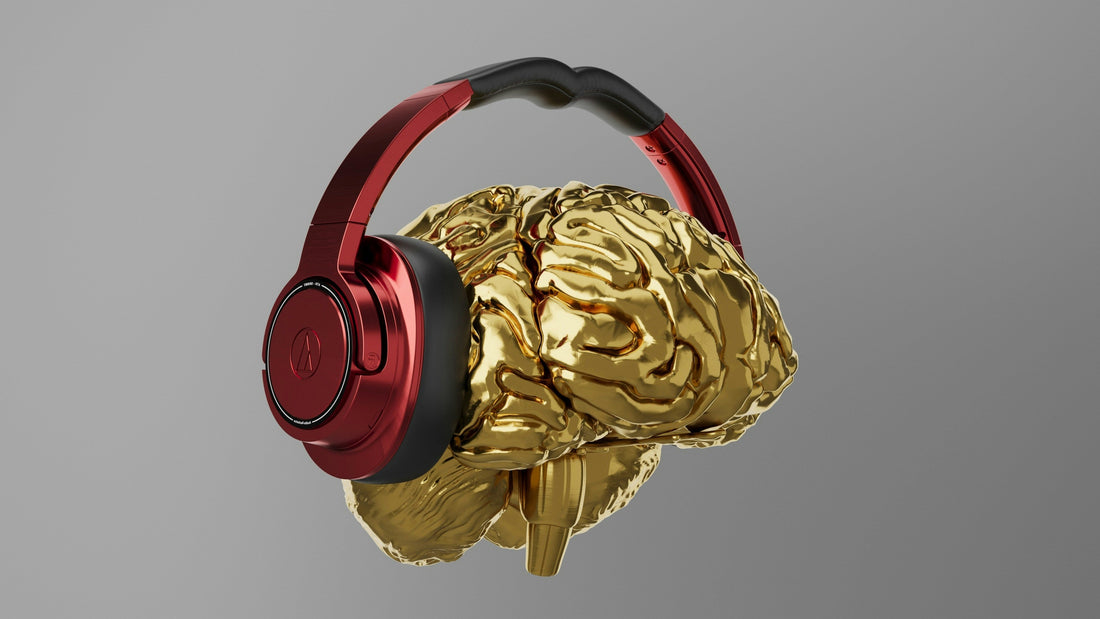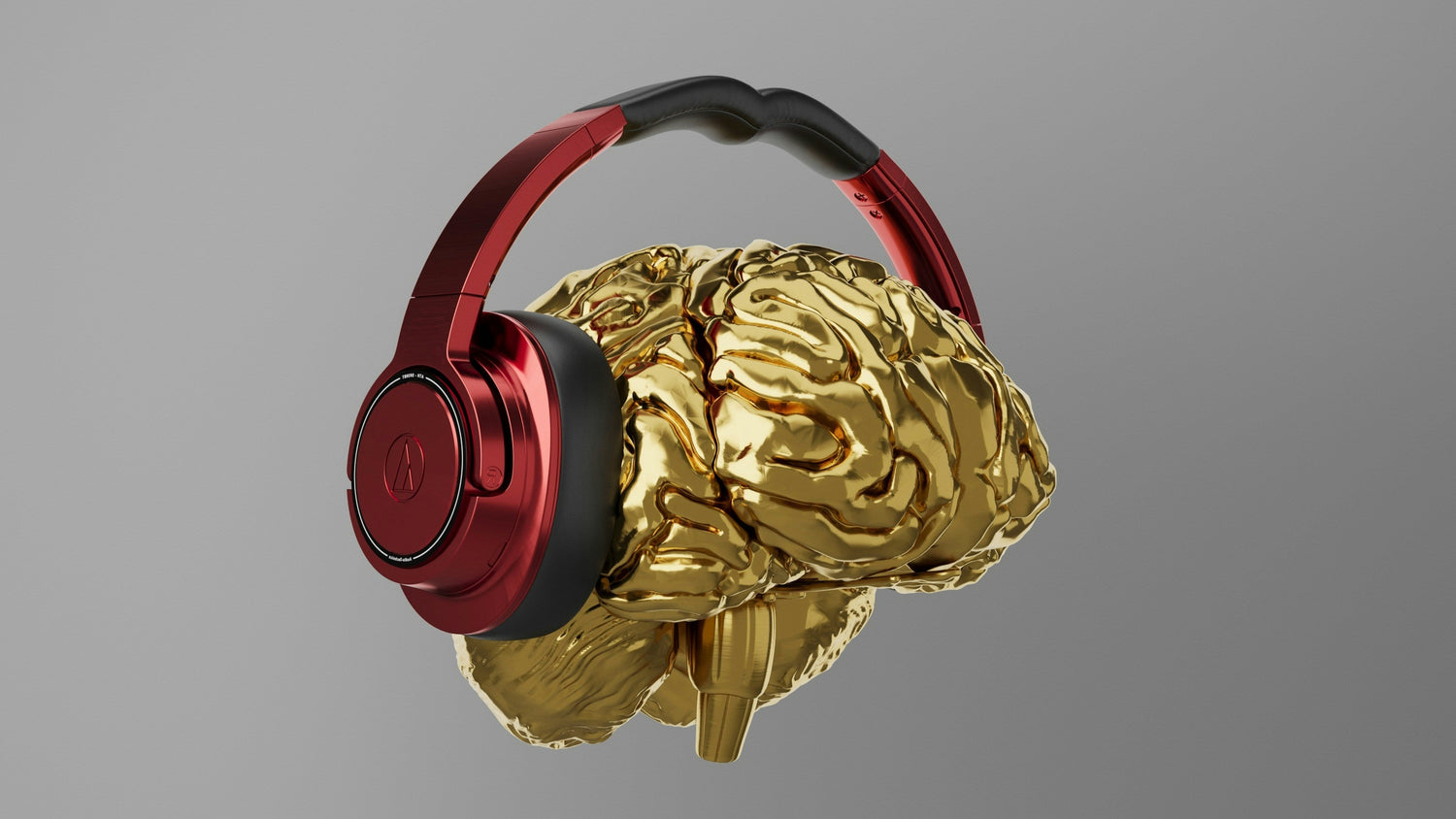Music now functions as an alternative to meditation for many individuals thus transforming their mental state with each listening session.
A growing number of individuals find peace by listening to vinyl records despite the world's constant overload of notifications and background noises from news feeds. The practice of listening to music through analogue formats has evolved into a quiet form of mindfulness despite being considered a retro trend. Does music serve as an adequate replacement for meditation practices? We need to investigate this matter by starting from the beginning.
The Rise of Mindful Listening
The essential nature of mindfulness requires complete attention to present experiences free from any form of judgment. People have typically developed mindfulness through methods such as practicing breathwork and practicing yoga alongside silent meditation. People now use deep musical listening as a practice which delivers comparable mental health advantages.
Listening to a complete album without interruptions requires sustained mental focus which develops your attention abilities. You lose yourself in the soundscape as you experience the narrative and emotional content. The deliberate attention you give while listening helps create mental tranquility and controls both anxiety and breathing patterns.
The Ritual of the Record
The ritual of vinyl contains a deep spiritual quality. Every step of the album selection and turntable operation demands attention and proper handling. You enter a screen-free environment which separates you from notifications while the world's fast pace fades away.
People who touch vinyl records during playback experience a connection with music that transforms the experience into an attentive practice. You’re not just pressing play—you’re participating. The experience of participating results in lowered cortisol levels together with increased dopamine production and strengthened sense perception.
Scientific Support
Listening to music activates a wide range of brain regions which control emotional responses and memory function as well as pain management systems according to cognitive neuroscience research. The research published in Psychology of Music demonstrated that focused musical engagement brings substantial relief from stress symptoms and creates better mood states.
Research published in the journal PLOS ONE in 2013 established that pre-sleep relaxation music improves self-reported sleep quality in listeners which supports the calming properties of music for the nervous system. The Journal of Music Therapy discovered that musical listening causes brainwave frequencies to shift toward alpha wave patterns which match the characteristics of meditative mental states.
The repetitive musical structures found in instrumental and ambient music as well as classical records help the brain achieve synchronization through a process known as entrainment with auditory stimuli. The brain's electrical rhythms synchronize in a similar fashion to the repetitive sounds found in chanting or mantra meditation practices.
Music and the Autonomic Nervous System
Research shows that music influences the autonomic nervous system which manages heart rate together with breathing and digestive processes. Listening to music with slow tempos in analog formats containing natural uncompressed audio has been linked to reduced heart rate and blood pressure which shows parasympathetic nervous system relaxation effects.
Research published in the International Journal of Psychophysiology revealed that listening to slow soothing music caused measurable decreases in stress indicators compared to both silent and energetic musical genres.
Sound as Self-Care
People worldwide are establishing listening nooks in their homes which combine turntables with chairs and select favorite albums. These are sanctuaries for sound. People now use sound listening areas in the same way that others use yoga mats.
The practice of deep listening to jazz or ambient or singer-songwriter albums has become essential for many people in their self-care routines when they close their eyes. Listening to the right record provides the foundation for this practice without requiring any scripted instructions.
The Mindful Vinyl Inspired Playlist
The following vinyl-inspired playlist contains a selection of music that promotes mindful listening and relaxation to help you begin your journey:
Miles Davis – Kind of Blue
Smooth jazz with gentle complexity. Perfect for mental relaxation.
Brian Eno – Music for Airports
Ambient textures that promote deep relaxation and alpha brainwave states.
Joni Mitchell – Blue
Emotional honesty and delicate instrumentation perfect for introspection.
Nick Drake – Pink Moon
A minimalist folk record for contemplative late-night listening.
Tycho – Dive
A contemporary ambient record with electronic soundscapes that provides the right ambiance for either relaxation or concentration.
Nils Frahm – Felt
This album features piano compositions that are intimate and warm with quiet details and analog textures.
Mazzy Star – So Tonight That I Might See
Slowcore dream pop that creates a dreamlike state that merges sleep and wakefulness.
Bill Evans – Peace Piece (from Everybody Digs Bill Evans)
A meditative solo piano track that feels like a breath of still air.
Olafur Arnalds – Remember
A composition of strings and electronic elements which progress through emotional nuances.
Leonard Cohen – You Want It Darker
For those looking to ground their thoughts in poetry and presence.
A2D2’s Mindful Listening Functionality
A2D2 was built with this quiet revolution in mind. A2D2 provides wireless vinyl and CD streaming to speakers throughout your house while maintaining the authentic analog sound of your collection and your ability to create meaningful listening sessions.
Sound exists beyond mere auditory experiences because presence is what matters most. A2D2 creates an environment that slows people down so they can experience deep listening.
Use vinyl instead of scrolling through your phone when you need to calm down. Your turntable could transform into your new meditation spot.
Explore our related blogs here:
Needle to Neurons: How Analog Music Affects the Brain Differently
The Science of Nostalgia: Why We Crave the Crackle of a Record or the Whirr of a Cassette


